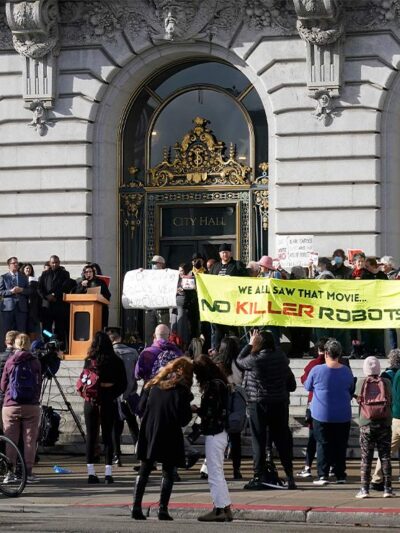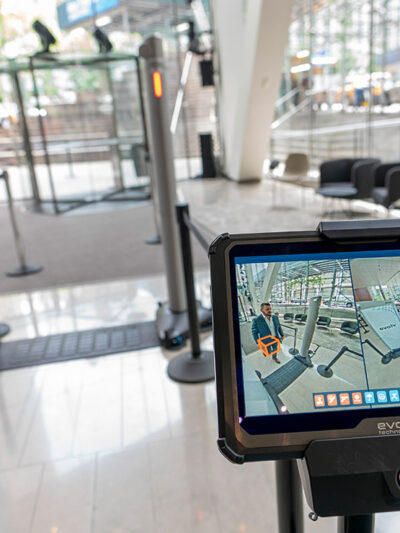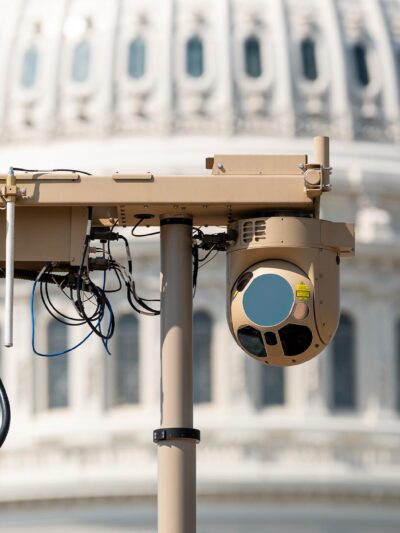News & Commentary
Dec 16, 2022
It’s Simply Too Dangerous to Arm Robots
Here are our guiding principles that communities and policymakers should follow when debating police robots.

Nov 02, 2022
Are Gun Detectors the Answer to Mass Shootings?
Surveillance technologies that promise to prevent gun violence are unproven and threaten our privacy.

Jul 18, 2022
New Records Detail DHS Purchase and Use of Vast Quantities of Cell Phone Location Data
Thousands of previously unreleased records illustrate how government agencies sidestep our Fourth Amendment rights.

Jul 15, 2022
Six Questions to Ask Before Accepting a Surveillance Technology
Community members, policymakers, and political leaders can make better decisions about new technology by asking these questions.

Apr 08, 2022
You Have the Right to Record Law Enforcement Officers — Including at the Border
In a landmark settlement, the federal government was forced to concede that there is no border exception to this First Amendment right.

Mar 28, 2022
We Need Digital Cash That is Actually Like Cash
If we’re to create a new form of money, it must be accessible and protect privacy.

Feb 08, 2022
A Scary Demonstration of What Unchecked Face Recognition Could Look Like
Video surveillance is becoming far more powerful than most people realize.

Stay Informed
Sign up to be the first to hear about how to take action.
By completing this form, I agree to receive occasional emails per the terms of the ACLU’s privacy statement.
By completing this form, I agree to receive occasional emails per the terms of the ACLU’s privacy statement.


